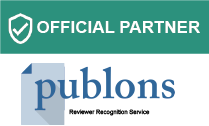Abstract
This study adopted several pedagogical foundations to determine if an interdisciplinary, problem-based learning (PBL) opportunity applied to teaching sport marketing would improve student’ individual and group oral communication skills. Faculty from two departments collaborated to create an assignment that was a hands-on class project designed around formative assessment, lecture intervention, and final PBL deliverable. The PBL and interdisciplinary design addressed the need for enhanced communication skills in the sport management industry. The study results indicate a successful development of the students’ data analysis and presentation skills. Findings confirm an interdisciplinary approach to PBL by implementing communication skill development across disciplines.
Keywords
Oral communication skills, Interdisciplinary design, Problem-solving learning, Self-reflection, Video,References
- B. Hursh, P. Haas, & M. Moore, An interdisciplinary model to implement general education, The Journal of Higher Education, 54(1) (1983) 42-59.
- J.T. Klein, A platform for a shared discourse of interdisciplinary education, Journal of Social Science Education, 5(4) (2006) 10-18.
- T.F.N. Laird, & A.K. Garver, The effect of teaching general education courses on deep approaches to learning: How disciplinary context matters, Research in Higher Education, 51(3) (2010) 248-265.
- L.R. Lattuca, L.J. Voigt, & K.Q. Fath, Does interdisciplinarity promote learning? Theoretical support and researchable questions. The review of Higher Education, 28(1) (2004) 23-48.
- Y. Weiberger, Two Birds, One Stone: Integrating Communication Proficiency Development into Existing Academic Courses, Journal of Educational Research and Practice, 8(1) (2018) 9.
- K. Nisula, & S. Pekkola, How to move away from the silos of business management education?, Journal of Education for Business, 93(3) (2018) 97-111.
- M. Brassler, & J. Dettmers, How to enhance interdisciplinary competence – interdisciplinary problem-based learning versus interdisciplinary project-based learning, Interdisciplinary Journal of Problem-Based Learning, 11(2) (2017).
- L.A. Stern, & M. Hailer, Presentation skills: An assessment of university and career-related presentations, Basic Communication Course Annual, 19(1) (2007) 10. http://ecommons.udayton.edu/bcca/vol19/iss1/10
- J.R. Braunstein-Minkove, & J.R. DeLuca, Effectively adapting the sport management curricula: Harnessing internal and external resources to address industry-specific needs, Schole: A Journal of Leisure Studies and Recreation Education, 30(2) (2015) 12-30.
- E.A. Ilgar, & B.B. Cihan, A Phenomenological Analysis on Evaluation of Sports Management Department Curriculum by Sports Sciences Faculty Members, Journal of Curriculum and Teaching, 7(2) (2018) 139-150.
- J.T. DeSensi, D.R. Kelley, M.D. Blanton, & P.A. Beitel, Sport management curricular evaluation and needs assessment: A multifaceted approach, Journal of Sport Management, 4(1) (1990) 31–58.
- S. Škorić, (2018, May). Characteristics of sport managers and challenges facing sport organizations. In 9th International Conference “An enterprise odyssey: Managing change to achieve quality development (pp. 497-503). https://bib.irb.hr/datoteka/944150.45Skoric.pdf
- Staff Writer (September 2, 2020). Sports Management Careers. Best Colleges. https://www.bestcolleges.com/careers/business/sports-management/
- D.A. Miragaia, & J.A. Soares, Higher education in sport management: A systematic review of research topics and trends, Journal of Hospitality, Leisure, Sport & Tourism Education, 21 (2017) 101-116.
- J.S. Lee, S. Blackwell, J. Drake, & K.A. Moran, Taking a leap of faith: Redefining teaching and learning in higher education through project-based learning, Interdisciplinary Journal of Problem-Based Learning, 8(2) (2014).
- M. Warr, & R.E. West, Bridging Academic Disciplines with Interdisciplinary Project-based Learning, Interdisciplinary Journal of Problem-Based Learning, 14(1) (2020).
- D.D. Sellnow, & S.L. Ahlfeldt, Fostering critical thinking and teamwork skills via a problem-based learning (PBL) approach to public speaking fundamentals, Communication Teacher, 19(1) (2005) 33-38.
- A.A. Tawfik, W. Hung, & P.J. Giabbanelli, Comparing how different inquiry-based approaches impact learning outcomes, Interdisciplinary Journal of Problem-Based Learning, 14(1) (2020).
- M.M. Grant, (2009). Understanding projects in project-based learning: A student’s perspective, Paper presented at Annual Meetings of the American Educational Research Association.
- S.S. Kumar, Soft skills for sports management, International Journal of Physical Education, Sports and Health, 4(3) (2017) 152153.
- B.L. Day, (2020). The Preparation of Sports Managers: A Case Study of Sports Management Program Curriculum Change (Doctoral dissertation, Northcentral University). https://search.proquest.com/docview/2399740472?pq-origsite=gscholar&fromopenview=true
- J. Dewey, (1938). Experience and Education. Macmillan, 1959; copyright by Kappa Delta Pi.
- M. Moallem, W. Hung, & N. Dabbagh, (2019). The Wiley handbook of problem-based learning. John Wiley & Sons, Inc.
- D.R. Krathwohl, & L.W. Anderson, (2009). A taxonomy for learning, teaching, and assessing: A revision of Bloom's taxonomy of educational objectives. Longman.
- B.S. Bloom, M.D. Engelhart, E.J. Furst, W.H. Hill, & D.R. Krathwohl, (1956). Taxonomy of education objectives: The classification of educational goals, Handbook 1: Cognitive domain. Longman.
- D.A. Kolb, (1984). Experiential learning: Experience as the source of learning and development. Prentice-Hall, Inc.
- S. Strokes-Eley, Using Kolb's experiential learning cycle in chapter presentations, Communication Teacher, 21(1) (2007) 26–29.
- E. Kusnic, & M. Finley, Student self-evaluation: An introduction and rationale, New Directions for Teaching and Learning, 56 (1993) 5–14.
- L. LeFebvre, & L.E. LeFebvre, “The eye in the sky doesn’t lie”: Video replay and self-evaluations as part of the basic communication course, Communication Teacher, 32(3) (2018) 167-178.
- S. Barry, A video recording and viewing protocol for student group presentations: Assisting self-assessment through a Wiki environment, Computers & Education, 59(3) (2012) 855-860.
- J.M. Valenzano, M.A. Broeckelman-Post, & E.S. Parcell, (2015). Communication Pathways. Fountainhead Press. https://ecommons.udayton.edu/cmm_fac_pub/20
- A. Slagell, Why should you use a clear pattern of organization? Because it works, Communication Teacher, 27(4) (2013) 198-201.
- Commission on Sport Management Accreditation (2016, May). Accreditation Principles Manual & Guidelines for Self-study Preparation. https://www.cosmaweb.org/accreditation-manuals.html
 |
|


 Articles
Articles




